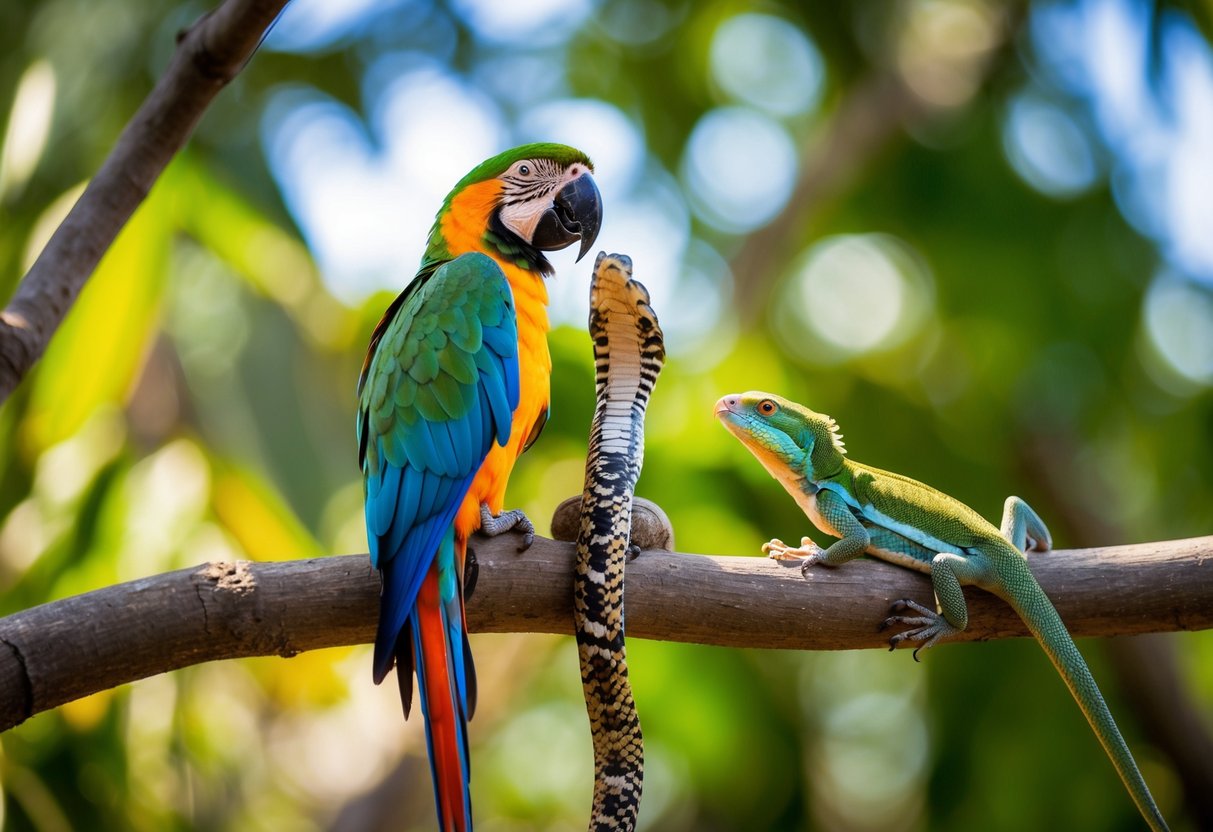
Long-Term Commitment and Considerations
Exotic pet ownership requires understanding their unique needs and the long-term responsibilities involved. The lifespan of these animals can vary dramatically, demanding careful planning for their future care.
Longevity and Life Span of Exotic Pets
The longevity of exotic pets varies widely, requiring potential owners to make informed decisions. Parrots, such as African Greys, can live 50 to 70 years, often outliving their owners. Reptiles like tortoises have lifespans that extend up to 100 years. This means they may require a plan for succession in care.
On the shorter end, small lizards and rodents may live 3 to 7 years. These differences highlight the necessity of understanding the commitment involved and ensuring readiness for long-term care. Owners need to research specific species to provide the knowledge required for appropriate housing, nutrition, and general well-being.
Planning for the Future
Planning for the future care of exotic pets is crucial due to their potential longevity. Owners should outline a plan in case of unexpected life changes. This includes making arrangements for the pet’s care if the owner becomes unable to continue their responsibilities.
Estate planning can also be important for pets with longer lifespans, such as parrots and tortoises. It’s advisable to discuss with family members or friends who may be willing to take over pet care. Understanding costs associated with such long lifespans also plays a key role in planning. They should consider veterinary care, dietary needs, and habitat maintenance to ensure that future responsibilities are met.
Community and Support
Connecting with fellow exotic pet owners offers valuable opportunities for knowledge exchange and shared experiences. Engaging in these communities helps in understanding diverse aspects of caring for exotic pets, providing both support and guidance when challenges arise.
Joining Exotic Pet Owner Groups
Joining groups for exotic pet owners provides an avenue for sharing experiences and obtaining practical advice. These groups can be found online through social media platforms and dedicated forums, which often include members with a range of expertise in various exotic animals. Local gatherings and events also create a sense of camaraderie.
Members exchange stories and offer support, answering specific questions about animal behavior and habitat needs. This network becomes invaluable in finding tips for feeding, grooming, and health care. Group discussions can also address specific concerns about uncommon health issues, diet adaptations, or habitat enrichment strategies.
Participation in these communities not only enhances knowledge but also creates lasting connections with others who share a passion for exotic animals. These interactions are particularly beneficial for new exotic pet owners who want reassurance and guidance.
Finding Expert Advice and Support
It is essential to engage with experts who can offer specialized advice when caring for exotic pets. Veterinarians who specialize in exotic animals provide accurate medical advice and preventive care strategies. They assist in identifying health concerns that are unique to exotic species and can personalize care plans.
Exotic pet shops and breeders are another resource, offering insights into specific breeds and species. Educational workshops and seminars can deepen understanding of various aspects of exotic pet care.
Accessing scientific publications about specific species’ needs and behaviors builds a strong foundation for responsible care. Networking with professionals also ensures that pet owners stay informed about the latest best practices, balancing between individual experience and expert knowledge.



